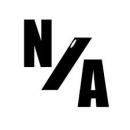Neal Ford
Northern Virginia Software Symposium
Reston · April 25 - 27, 2014

Director / Software Architect / Meme Wrangler
Neal is Director, Software Architect, and Meme Wrangler at ThoughtWorks, a global IT consultancy with an exclusive focus on end-to-end software development and delivery.
Before joining ThoughtWorks, Neal was the Chief Technology Officer at The DSW Group, Ltd., a nationally recognized training and development firm. Neal has a degree in Computer Science from Georgia State University specializing in languages and compilers and a minor in mathematics specializing in statistical analysis.
He is also the designer and developer of applications, instructional materials, magazine articles, video presentations, and author of 6 books, including the most recent The Productive Programmer. His language proficiencies include Java, C#/.NET, Ruby, Groovy, functional languages, Scheme, Object Pascal, C++, and C. His primary consulting focus is the design and construction of large-scale enterprise applications. Neal has taught on-site classes nationally and internationally to all phases of the military and to many Fortune 500 companies. He is also an internationally acclaimed speaker, having spoken at over 100 developer conferences worldwide, delivering more than 600 talks. If you have an insatiable curiosity about Neal, visit his web site at http://www.nealford.com. He welcomes feedback and can be reached at nford@thoughtworks.com.
Presentations
Continuous Delivery Workshop, part 1 of 3: Deployment Pipelines
The first part of the Continuous Delivery workshop covers the differences between continuous integration, continuous deployment, and continuous delivery). It also introduces the deployment pipeline_, along with usage, patterns, and anti-patterns. This part concludes with some applied engineering principles.
Continuous Delivery Workshop, part 2 of 3: Testing, Synergistic Practices, and Deployment
Continuous Delivery relies on a variety of interlocking engineering practices to work efficiently; this session covers three related topics. First, I cover the role of testing and the testing quadrant. Second, I specifically cover version control usage and offer alternatives to feature branching like toggle and branch by abstraction. Third, I describe some incremental release strategies, along with their impact on other stages of project lifecycle.
Continuous Delivery Workshop, part 3 of 3: Infrastructure and Data
Two big stumbling blocks for Continuous Delivery adaptation are interactions with operations and the keepers of data. First in this session, I cover operations, DevOps, and programmatic control of infrastructure. Second, I discuss how to incorporate databases and DBA's into the Continuous Integration and Continuous Delivery process.
Continuous Delivery for Architects
This multi-disciplinary session takes a deep dive into
the confluence of topics required to fully understand the intersection
of Continuous Delivery and architecture, including evolutionary
architecture and emergent design, with an emphasis on how
architectural decisions affect the ease in changing and evolving your
code, the role of metrics to understand code, how Domain Driven
Design's Bounded Context reifies in architecture, how to reduce
intra-component/service coupling, and other techniques.
Build Your Own Technology Radar Workshop for Architects
A Technology Radar is a tool that forces you to organize and think about near term future technology decisions, both for you and your company. This talk discusses using the radar for personal breadth development, architectural guidance, and governance.
4 Practical Uses for Domain Specific Languages
Domain Specific Langauges seems like a cool idea, but where's the payoff? This talk provides an overview of how to build both internal and external DSLs (including the state of the art tools), stopping along the way to show how this is practical to your day job.
Keynote: This is Water
There are these two young fish swimming along and they happen to meet an older fish swimming the other way, who nods at them and says “Morning, boys. How's the water?” And the two young fish swim on for a bit, and then eventually one of them looks over at the other and goes “What the hell is water?“
David Foster Wallace, from This is Water
